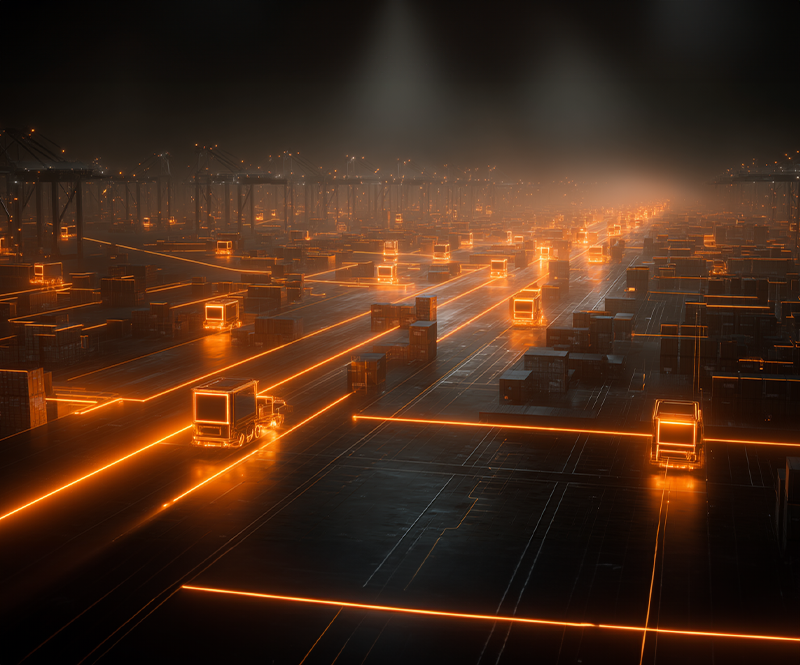AI & Automation Are Reshaping Logistics and Supply Chains
Artificial intelligence (AI) and automation are no longer future technologies. They are rapidly becoming central to how global logistics and supply chain networks operate. As digital transformation accelerates across industries, companies are turning to intelligent technologies to meet rising consumer expectations, reduce costs, and improve supply chain resilience.
Smart Warehousing and Inventory Optimization
One of the most visible impacts of AI and automation lies in smart warehousing. Through sensors, machine learning algorithms, and robotics, warehouses are becoming fully automated environments where products are received, stored, picked, and shipped with minimal human intervention. AI systems monitor inventory in real time, predict stock shortages before they happen, and automate replenishment orders. This level of optimization ensures that businesses maintain stock levels that meet demand without overstocking or understocking, ultimately saving space, time, and money.
Demand Forecasting and Data-Driven Decision Making
AI is revolutionizing the accuracy of demand forecasting. By analyzing vast datasets including customer behavior, seasonal trends, market fluctuations, and even weather patterns, AI can predict what products will be needed, when, and where. This allows businesses to align production schedules, shipping routes, and inventory management with real-world demand, reducing waste and boosting operational efficiency.
Automation in Transportation and Delivery
Autonomous delivery vehicles, drones, and automated dispatch systems are transforming how goods move through the supply chain. These technologies enable faster and more precise last-mile delivery which is often the most expensive and complex part of the supply chain. Self-driving trucks are already being tested for long-haul freight while drones are making rapid contactless deliveries possible in both urban and rural areas.
This automation not only improves delivery times and accuracy but also reduces dependency on human labor, minimizes errors, and enhances safety.
Real-Time Visibility and Risk Management
AI-powered platforms give businesses unprecedented visibility into their supply chains. From the moment a product leaves a supplier to its arrival at the customer’s doorstep, companies can monitor shipments in real time, track performance, and detect disruptions early. This transparency allows for faster problem resolution and better customer service.
Moreover, AI systems can identify risks such as delays, supplier shortages, or geopolitical issues and suggest alternative routes or suppliers, ensuring continuity even during crises.
Sustainability and Smart Logistics
Sustainability is becoming a top priority and AI is helping logistics companies reduce their carbon footprint. Route optimization algorithms reduce fuel consumption, predictive maintenance minimizes machine breakdowns, and smart packaging systems cut down on waste. These improvements not only align with global sustainability goals but also contribute to long-term cost savings.
Looking Ahead: A Smarter Supply Chain
Businesses that embrace AI and automation are positioning themselves at the forefront of a smarter and more connected global supply chain. As technologies evolve, we can expect even more breakthroughs including AI-powered procurement, fully autonomous distribution centers, and intelligent customer service bots.
In a world where speed, precision, and adaptability define success, integrating AI into supply chain operations is not optional. It is a strategic imperative for businesses that want to thrive in the digital era.


